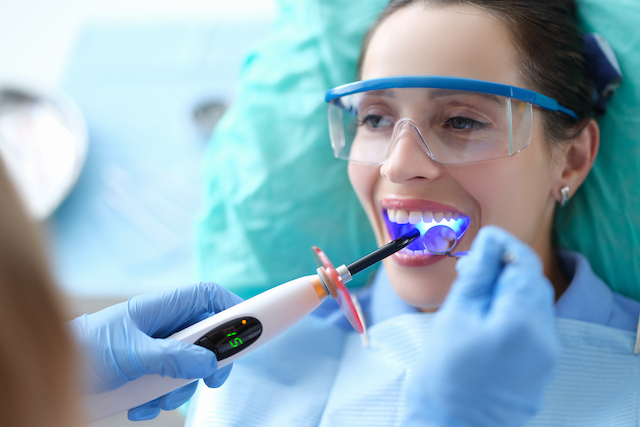
Partial dentures can be legitimately life-changing for those who’ve long suffered from chronic tooth trouble or gum disease. They look natural, they work great… but they can take a little getting used to. In fact, the consensus from dentists is that there are five particular side effects one is essentially certain to experience, in varying degrees, after being fitted with partial dentures.
Thankfully, in addition to being purely temporary, these reactions are more akin to “annoying and inconvenient” than, say, “tortuous and debilitating.” Nonetheless, knowing what to expect will have you better prepared to deal with it.
With that in mind, we’ve prepared this guide to familiarize you with the early days of this process—but rest assured that it will ultimately be characterized by renewed feelings of hopefulness and empowerment!
1. Sort of a Pain in the Gums…
- Some discomfort is to be expected following your procedure. The entire area may feel sore for a bit, especially on your gums where the denture implant rests.
- If the pain is severe, or persists beyond the first week or so, contact your dentist. They may want to have you in for a checkup to evaluate whether the problem could be caused by your partial dentures not fitting quite.
- If this is determined to be the case, they can be “trimmed down” and reshaped to alleviate contact abrasion.
2. Your Word, Slurred
- Though we very naturally take it for granted, the “mechanism” by which we’re actually able to “create” verbal speech is extraordinarily intricate, with countless components working together seamlessly the sounds comprising our spoken language.
- Your brand new partial dentures don’t yet know the complex protocol! Some slurring of your speech is therefore inevitable while your mind and body adjust to the change. The consonants that tend to present the most difficulty are “L,” “R,” and “S.” Longer vowel sounds can be tricky at first as well.
- The human mouth is a very resilient structure! In the overwhelming majority of cases, speech irregularities resolve themselves naturally in the initial few weeks as it gets used to the implant. If speech difficulties persist or are significantly hampering daily activities, your dentist may recommend a regimen of speech exercises or help you find the appropriate specialist for a consultation.
3. TLC for Those Lovely Chompers
- At least initially, some attentive care and maintenance will be needed to ensure an optimal long-term outcome. Keeping your implant clean is a must, particularly while you’re still acclimating to the new circumstances.
- To this end, it’s advisable not to wear your partial dentures for prolonged/uninterrupted stretches. They should be removed multiple times throughout the day, inspected for any traces of staining or lodged food, and gently cleaned with a soft-bristle brush. Soak the implant overnight in denture solution.
- -Only soft foods in the first few days. (Your dentist will provide detailed instructions, of course.) Avoid the “usual suspects”—anything overly hard or sticky; you’ll have to make do without jawbreakers and taffy for a while… The good news is, before you know it, chewing anything is going to feel much easier than it has for a long time!
Catonsville Dental Care is The Best Choice for Your Dental Health
Catonsville Dental Care offers a wide variety of services when it comes to oral health. We have the experience and understanding to diagnose and treat any problem you have as quickly and painlessly as possible. With four dentists available at our office and a commitment to comfort, safety, and relaxation, you can’t find a better provider for your health. We look forward to helping you keep your smile perfect all year long and talking with you about your needs. To schedule an appointment or consultation, visit us online or give us a call at 410-747-1115. For more tips and tricks, follow us on Facebook, Flickr, Twitter, and YouTube.
